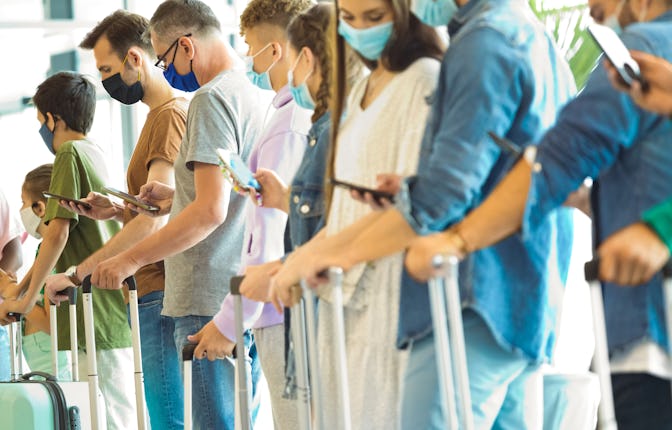The CDC just upped the monkeypox alert level
But that doesn't mean it's time to panic. Here's what you need to know.

Summer travel may be upon us, but so is monkeypox — and this week, the CDC upped its monkeypox travel alert to Level 2, or “practice enhanced precautions.” Since making headlines last month, the rare virus has continued to spread. As of June 6, there have been 31 confirmed cases of monkeypox in the U.S. (across 13 states), and 1,019 cases globally (across 29 countries). The rising case counts around the world were enough for the CDC to issue a series of recommendations for how travelers can help minimize the spread. While several news outlets reported the CDC’s initial Level 2 guidance included a recommendation to wear face masks while traveling, that recommendation no longer appears within the agency’s current travel notice.
The agency also isn’t telling people to cancel their summer trips because of the outbreak. The notice does, however, advise travelers to avoid close contact with sick people (particularly people with skin lesions or genital lesions), avoid close contact with dead or live wild animals, avoid eating or preparing meat from wild game or using products (such as lotions and powders) derived from wild animals in Africa, and avoid contact with contaminated materials (like clothing, bedding, or healthcare materials) that were used by sick people or that came into contact with infected animals.
That said, it’s also important not to go into panic mode. While monkeypox can be fatal, only about 10% of people infected die from the disease. More typically, the virus causes a flu-like illness and a rash or lesions. Not only that, but the virus isn’t airborne (unlike COVID), and experts have reiterated that transmission generally requires prolonged intimate contact, as NewsNation reported. “It takes a lot of contact to get it, which is why we don’t think it’s a major risk to the general population,” infectious disease specialist Dr. Monica Gandhi, told NewsNation Prime.
It’s also worth reiterating that, despite recent homophobic and racist sentiments about its origins and nature, monkeypox is not a “gay disease” or a sexually transmitted disease. Any and everyone is susceptible to infection through close contact.
The best way to stay vigilant and clear on your own safety in relation to the virus is to be cautious, listen to experts, and maybe just keep that face mask on. After all, we are still in the throes of a years-long COVID-19 pandemic.